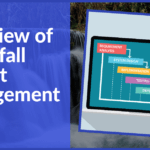The methodology that your project management office (PMO) chooses to run activities can change and develop over time. It’s important to keep project managers up to date with your project methodology with regular training sessions.
Training is very rarely a “one and done” situation but a process over time. You may have used Agile project management for years, but that doesn’t mean your project managers (PMs) won’t benefit from extra learning opportunities.
Of course, you’ll want to offer comprehensive training when you decide to change your project management style, too. To help you understand how to train your PMs in your chosen methods, we’re going to look at:
- When you need to offer training on project management methodologies
- Different options for providing training about your methodologies
- What you should expect or provide in these training sessions
When should my PMO offer training on our project methodology?
Your project methodology is a choice made by your PMO and will rarely apply across other areas of the business, meaning this training falls very much in the purview of your PMO rather than HR. You need to make sure that everyone running the projects you monitor are competent in the methods you use.
Changing methodology
It’s not uncommon for a PMO to decide to change the methodology being used. Maybe you want to shift from Waterfall to Scrum, or from Gantt charts to Kanban. It’s a big decision, and one of the costs you need to account for is training your PMs in how to effectively use your new methods.
Training them about the reporting and documents they need to start using is just one element. You need to ensure your PMs understand the concept of the methods you’re rolling out and how they can be adapted for different circumstances.
New recruits
Ideally, you’ll also offer comprehensive training on your project methods to new PMs under your PMO. This may not be easy in one-on-one situations, but training can be adapted, which we’ll cover in a moment.
Refresher for existing PMs
Ongoing training is vitally important. PMs, like any manager, can fall into bad habits, so a refresher training course will keep everyone on top of using the right processes. Regular methodology training also allows tweaks and improvements made by one PM to be shared across the office.
How should my PMO provide methodology training?
Training your PMs about project methodologies can get quite in-depth, especially when you’re introducing a system for the first time. Employing a range of techniques depending on your situation is a sensible solution.
Here are some tips for which training type to offer and when:
- Classroom training – ideal when rolling out a new methodology, and you have resources and budget to dedicate. Bring in external trainers or run it internally, but be sure to keep it short, specific, and practical so lessons can be directly applied.
- Online training – this works when you want to refresh your current PMs and keep the fundamental processes front of mind. Create written and video content to ensure everyone can access it and cover elements of the method in bitesize chunks.
- Face-to-face training – use this to train your new recruits since a formal classroom session for one person can be intimidating. Intensive one-on-one coaching will give quick confidence to a new PM on your team to get them up to speed.
- External training – formal training offered by an external education provider can really help your PMs understand the underlying features and applications of your methodology. It’s also a great way to increase retention rates, but it is pricey.
What should be included in project methodology training?
When you’re putting together your own training package, or using an external provider to deliver it, you need to make sure you cover:
- The reasons your PMO chooses to use the methods you do
- How to plan a project, e.g. sprints, Kanban boards etc.
- Tools the PMs needs, such as technology and comms
- How to use the methodology to achieve KPIs
The take-home
It’s vital that every project manager understands how to use the methodology you’ve chosen for everyone under your PMO. Keeping managers up to date with the your project methodology and the associated processes will ensure effective projects and clear data that is uniform, and therefore comparable, across projects.






